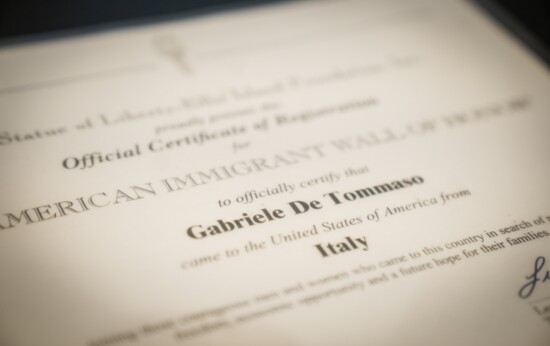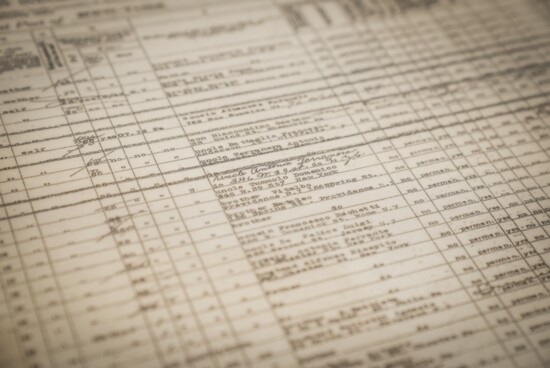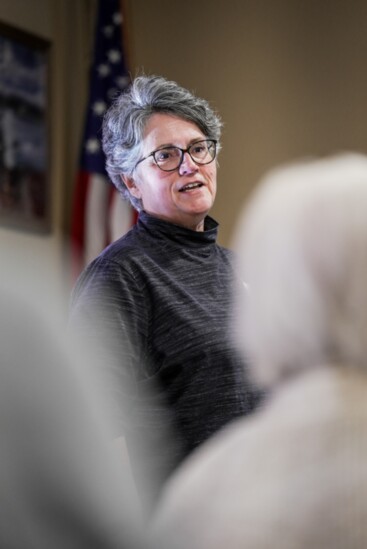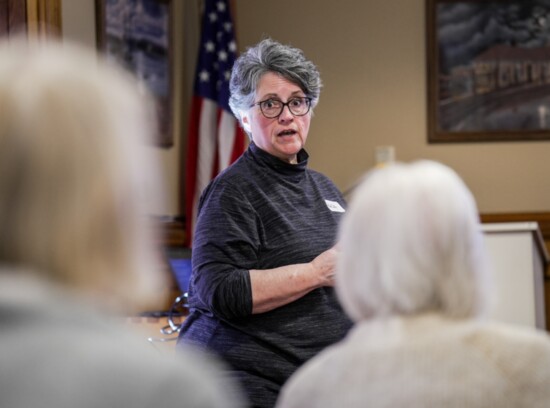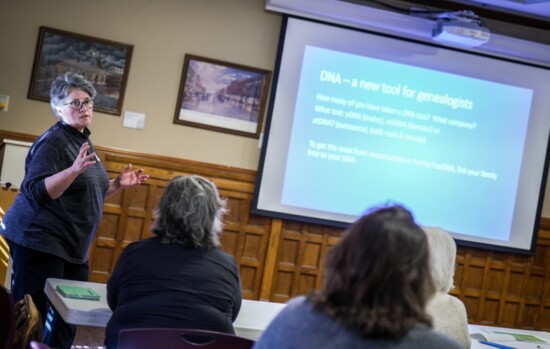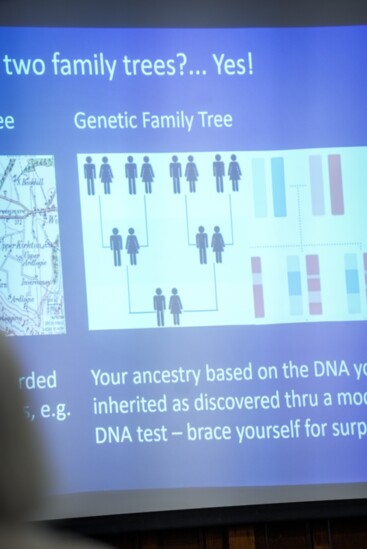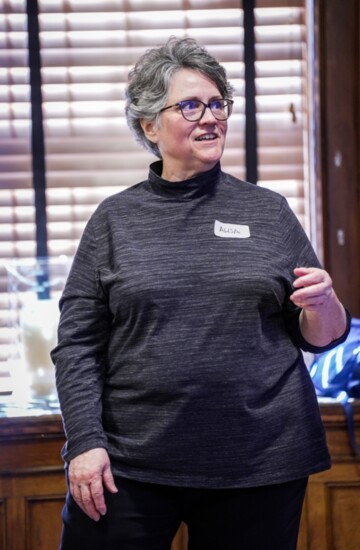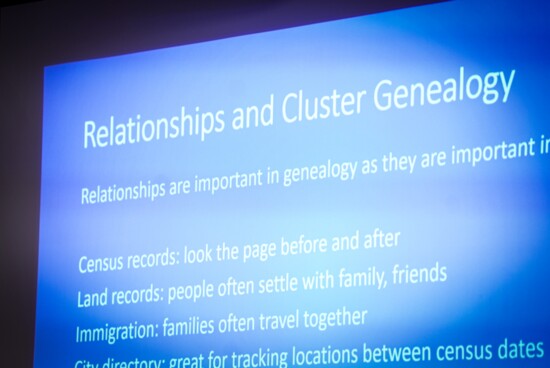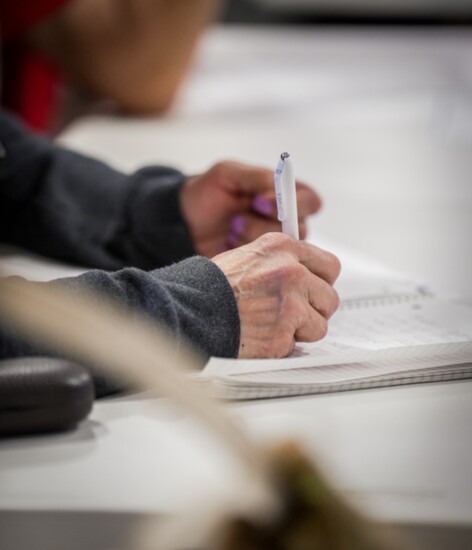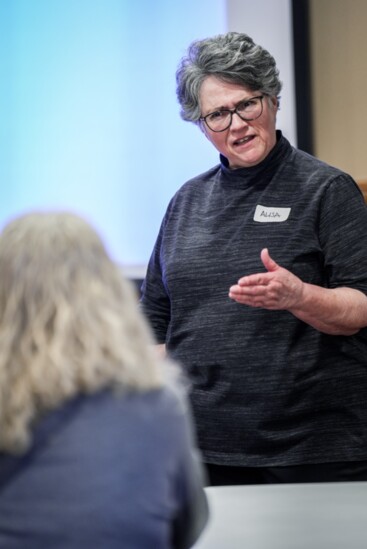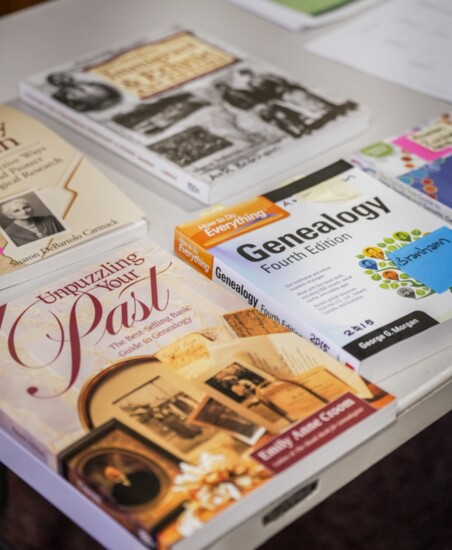Genealogy, the study of family ancestries and histories, is an invaluable discipline that extends far beyond mere hobbyist interest. Its significance lies in connecting individuals with their past, informing their present, and shaping the legacy they leave for future generations.
Genealogy expert Alysa Branham teaches beginning classes at the Watkins Museum of History. Courses like this one are offered regularly throughout the year, allowing the general public to learn how to study their ancestry and format and share this information with loved ones. Moreover, integrating genealogical research with fields like genetics has revolutionized our understanding of human history and individual identity.
“Genealogy provides individuals with a sense of identity and belonging by uncovering the stories, struggles, and achievements of their ancestors,” says Branham. “By examining historical records, such as birth certificates, wills, and census data, genealogists can construct family trees that reveal connections and patterns across generations. This historical context offers a unique perspective on individual and collective identities, shaping how people understand their place in the world.”
Beyond personal enlightenment, genealogy has practical applications in medicine, genetics, and heritage conservation. By tracing genetic traits and health conditions through generations, individuals can gain valuable insights into their genetic predispositions and take proactive health measures. Additionally, genealogical research is critical in legal contexts, such as establishing inheritance rights and verifying familial relationships in immigration cases.
Genealogical research plays a crucial role in preserving cultural heritage and collective memory. Preserving ancestral knowledge strengthens community bonds and fosters a deeper appreciation for diverse backgrounds and histories.
My children live in Europe. After the Covid pandemic kept me from visiting them, I looked closer at my genealogy. Studying my family roots helped me understand that I qualify for a passport in Italy as a dual citizen. After digging into our family, I identified my path to an Italian passport and should have that fully completed this year. This will allow me to be present in the USA or Europe for work, to live, or simply to remain if that need arises, such as another pandemic that threatens to keep me from my children.
The advent of DNA testing has transformed genealogical research, allowing individuals to trace their ancestry beyond the limits of written records. Genetic genealogy uses DNA samples to uncover ancestral origins, trace migration paths, and connect with biological relatives. It can be invaluable for individuals who do not know who their parents and ancestors are and for finding family they previously did not know.
Engaging in genealogical research also allows individuals to leave a legacy for their descendants. Documenting family histories, stories, and genetic information provides future generations with a tangible connection to their past. This legacy empowers descendants with knowledge, enabling them to preserve their heritage and make informed decisions about their futures.
“Genealogy is more than the study of family trees,” notes Branham. “It is a journey into the past that informs our present and shapes our future.”
The Watkins Museum has a list of families who have genealogical information (books, family trees, etc.) in the Kramer Research Room. To learn more about their resources, go to WatkinsMuseum.org/research.
“Genealogy provides individuals with...identity and belonging by uncovering stories, struggles, and achievements of their ancestors.”

